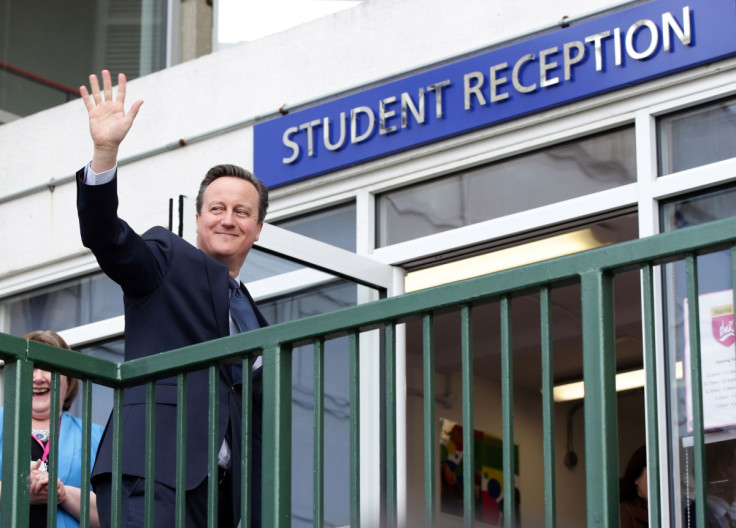Budget 2016: Why is Government turning schools into academies with no evidence they work?

Comprehensive schooling is a bit like democracy. It has its flaws, but is ultimately better than the alternatives.
In this respect, the fealty shown by Conservative and Labour politicians toward academy schools resembles the romantic attachment in some quarters to grammars. There is no evidence that either perform better than comprehensives, yet there is a stubborn romantic aura around the idea that these schools are better than 'bog standard' comprehensives.
Whereas in the past grammar schools were supposed to celebrate meritocracy, academies supposedly raise the standards of inadequate schools today. Grammar schools were until recently one of the most enduring educational myths (they still are among reactionary Conservatives and Kippers). And yet we've known for some time that they don't improve the life chances of poorer pupils.
A recent study of Buckinghamshire, a county with a wholly selective school system, found that private school pupils were two-and-a-half times more likely to pass the 11-plus exam than state school pupils. The pass rate for children on free school meals was one-eighth of the average. Selection at 11 benefited the affluent but did little to improve the academic performance of the majority. Not that this stopped education secretary Nicky Morgan opening the first new grammar school in 50 years last year. The romantic penumbra surrounding grammar schools was allowed to trump the evidence.
There is, of course, little chance of a mass return to grammar schools. For one thing, they have a tendency to upset lots of middle class parents, something which is anathema to a political class obsessed with 'middle England' and the 'centre ground'.
When John Major promised "a grammar school in every town" prior to his 1997 election defeat, what he did not say was that this would invariably entail the creation of a substandard secondary modern in every town too. This is one reason why David Cameron made the rejection of grammar schools a "key test" (his words) of the Tory modernisation project.
And so instead we get academy schools. The Chancellor George Osborne has today announced in the budget a plan to turn every school in England into an academy by 2020. Osborne has put aside £1.5bn of funding for the plan, under which all primary and secondary schools in England will abolish nationally agreed curriculums and teacher pay scales.
This represents yet another attempt to move away from comprehensive state education based, like the lionisation of grammar schools, on flimsy evidence. In fact, let me rephrase that: there is currently no evidence to show that academy schools raise educational standards. None. Zilch. Nada.
Leave aside for one moment the implications for common school standards and union-busting practices of an expanded academy programme – academies need not, as already mentioned, respect national pay scales or curriculum norms. Also leave aside the fact that the policy may be completely unaffordable. Leave all that aside and understand that this is an announcement based on a spurious ideological aversion to state provision.
Last year, the education select committee released a report on academy schools which concluded that 'current evidence does not allow us to draw conclusions on whether academies in themselves are a positive force for change... Academisation is not always successful nor is it the only proven alternative for a struggling school'.
Other reports go even further. In fact, we can draw some conclusions about the impact of academy schools. According to a major 2014 study, low performing primaries which converted to sponsored academies have improved at a slower rate than their counterparts in the state sector. As the Local Schools Network has made clear on the back of its own meticulous research, 'None of the claims of government ministers for the better performance of sponsored academies stand up to scrutiny.'
England has never had a truly comprehensive system of education
The problem for Labour in opposing today's announcement is that academies were originally introduced by the Tony Blair government back in 2002. In response to Osborne, current Labour leader Jeremy Corbyn has opposed Osborne's expansion of the academy programme, also commenting on the lack of evidence to show any successful outcomes. Yet New Labour's support for academisation will invariably be marshalled by Cameron and Osborne as further evidence of Corbyn's detachment from the New Labour/Cameroonian mainstream. Never mind that this time Corbyn happens to have all the available evidence on his side
The truth of course, which those who are so quick to damn comprehensive education will never admit, is that England has never had a truly comprehensive system of education. Our politicians ought to know a bit about this from experience: both Tony Blair and David Cameron were educated at fee-paying schools, as were 32% of the 2015 intake of MPs. There are still 164 remaining grammar schools in England; and it was way back in 1988, under Margaret Thatcher, that schools were first given the option of opting out of local authority control.
Comprehensive education has never been universal, has never been allowed to settle down, and is now being hastily dismantled based on an ideological creed which assumes that anything with the word 'state' in the name is unquestionably evil.
© Copyright IBTimes 2025. All rights reserved.




















